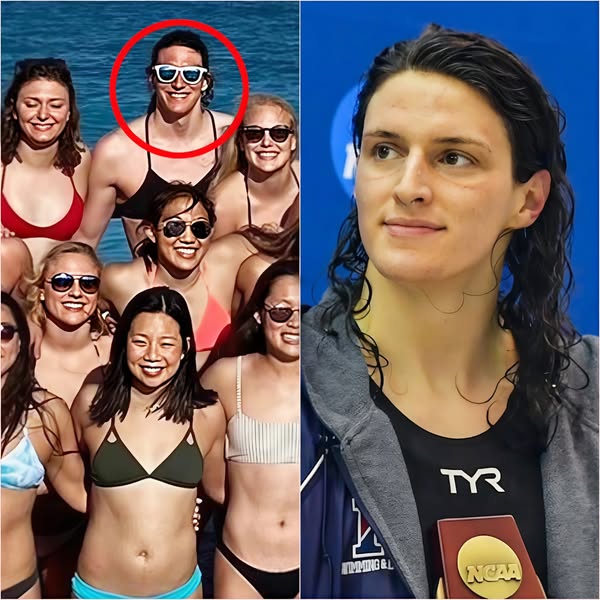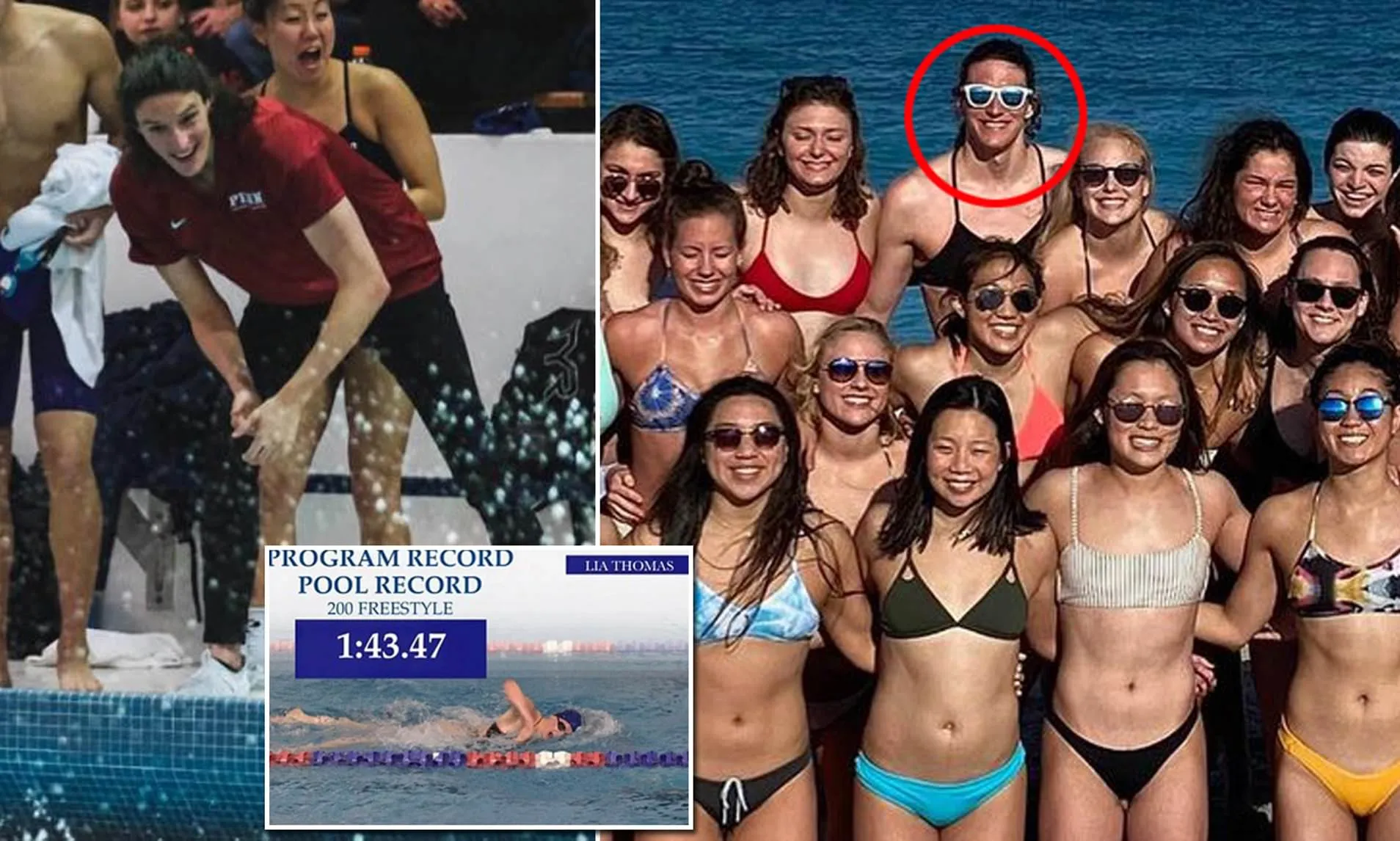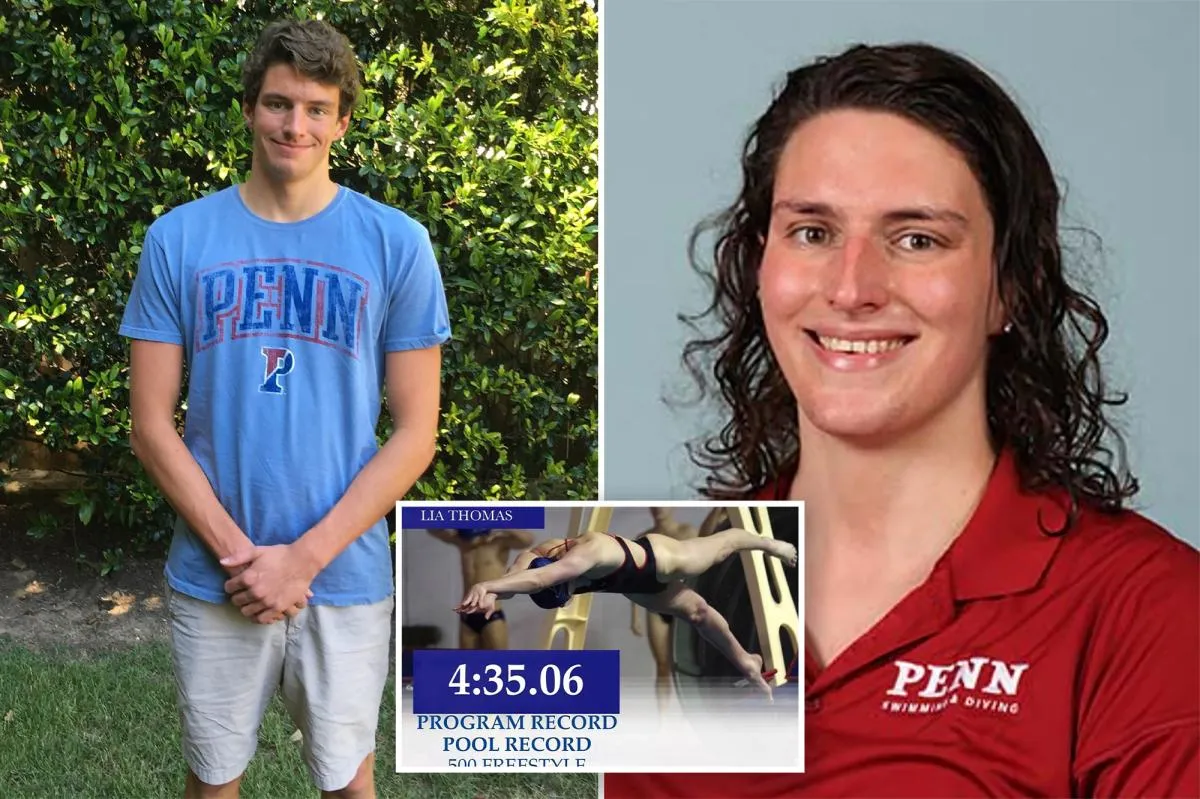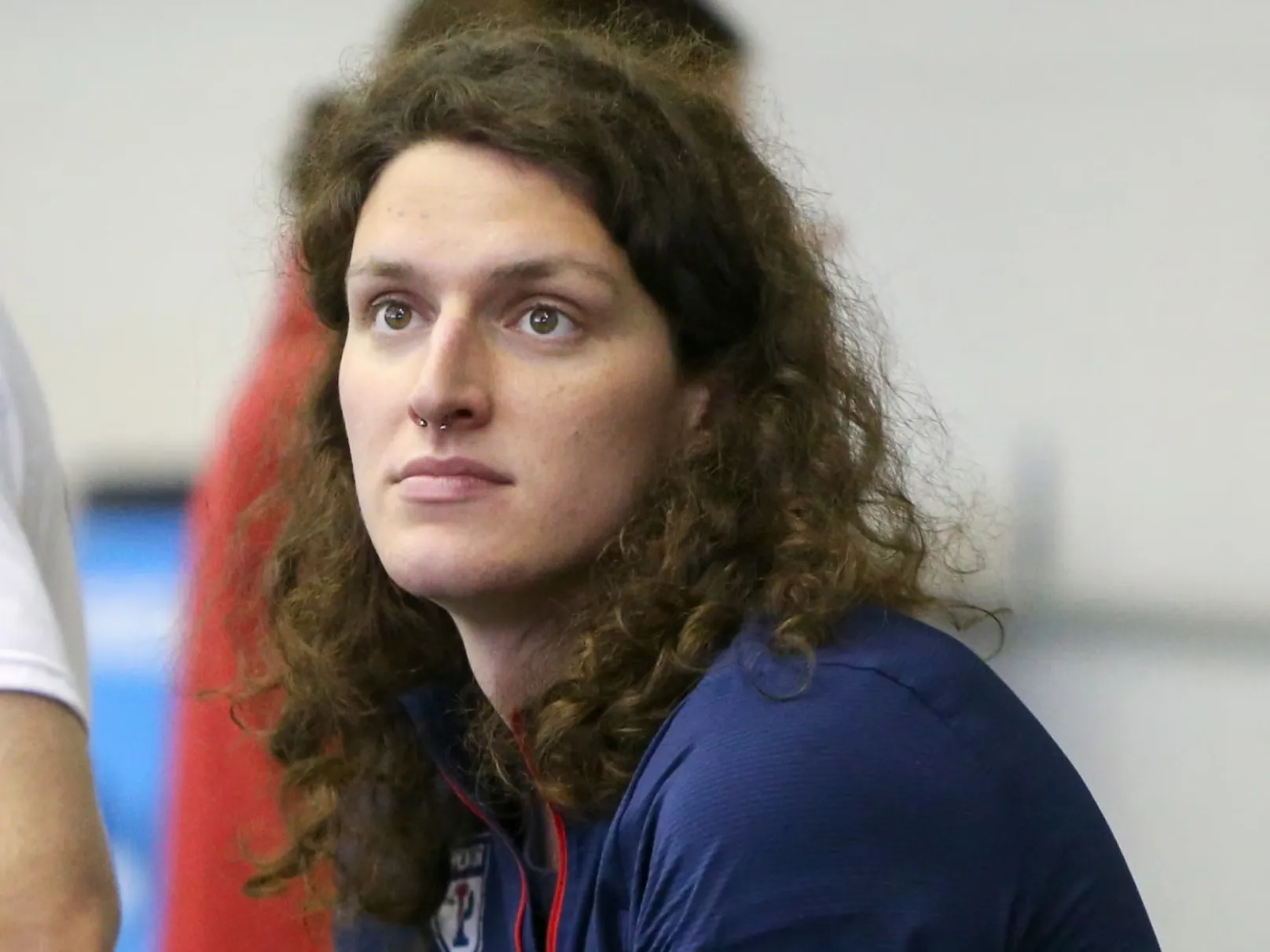
In a shocking turn of events, Lia William Thomas, the controversial transgender swimmer who has been at the center of an intense debate in women’s sports, has announced her permanent departure from competitive women’s swimming. This decision follows her recent disqualification from the Olympics, an exclusion that has sparked yet another wave of heated discussions regarding fairness, inclusion, and the future of transgender athletes in sports.
Lia Thomas’ Statement: ‘Nobody Wants Me on Their Team’
Thomas, who made history as the first openly transgender athlete to win an NCAA Division I women’s championship, spoke candidly about her decision, stating, “Nobody wants me on their team.” Her words reflect the deep frustration and emotional toll that her participation in women’s sports has brought—not just on her, but on the broader athletic community.
For years, Thomas has faced relentless scrutiny over what some critics claim is an unfair biological advantage stemming from her transition. While supporters have championed her right to compete in alignment with her gender identity, opponents have pointed to scientific arguments about muscle mass, lung capacity, and other physiological factors that they believe give her an edge over cisgender female competitors.

With this latest setback—the Olympic disqualification—Thomas appears to have reached a breaking point, choosing to step away rather than continue the battle for inclusion in women’s swimming.
The Road to Disqualification: Why Was Lia Thomas Barred from the Olympics?
Lia Thomas’ exclusion from the Olympic Games stems from updated policies by World Aquatics (formerly FINA), the international governing body for swimming. In 2022, the organization implemented a new rule stating that transgender women who transitioned after the age of 12 are ineligible to compete in women’s events at elite levels. Since Thomas underwent male puberty before transitioning, she fell outside the new eligibility criteria.
This ruling effectively ended her Olympic aspirations, a dream she had pursued since her college swimming days at the University of Pennsylvania. While some have lauded the decision as a step toward fairness in women’s sports, others argue that it represents a discriminatory setback for transgender athletes.
Backlash and Support: A Polarizing Debate
Lia Thomas’ career has been emblematic of the larger cultural and political debate surrounding transgender inclusion in sports. Her victories in NCAA competitions ignited discussions on whether transgender women should be allowed to compete in female categories, with critics arguing that it compromises the integrity of women’s sports and supporters emphasizing the importance of inclusion and equality.

Following her disqualification and subsequent retirement from competitive women’s swimming, reactions have been predictably polarized.
- Critics: Many have expressed that Thomas’ exit is the right outcome, arguing that her biological advantages, despite hormone treatments, made competition unfair for cisgender female athletes.
- Supporters: On the other hand, LGBTQ+ advocates and allies have decried the treatment she has received, calling it an example of systemic discrimination against transgender athletes.
Riley Gaines, a former NCAA swimmer who has been outspoken against transgender women competing in female sports, took to social media to express her views, stating, “This is the right call for women’s sports. We must protect fair competition.”
Conversely, athlete and activist Schuyler Bailar, the first openly transgender NCAA Division I swimmer, defended Thomas, saying, “Lia deserves respect and dignity. The way she has been treated is unacceptable.”
What’s Next for Lia Thomas?

With her departure from competitive swimming, questions remain about what’s next for Lia Thomas. While she has not explicitly stated her future plans, some speculate that she may take on an advocacy role for transgender athletes, using her experiences to push for policy changes and increased inclusivity in sports.
Others believe she may step away from the public eye entirely, exhausted by the ongoing controversy and relentless media attention.
Regardless of what lies ahead, Thomas’ story has left an undeniable mark on the world of sports. Whether viewed as a trailblazer or as a symbol of an ongoing debate, her legacy is one that will continue to shape discussions about gender, biology, and fairness in competition for years to come.
The Bigger Picture: The Future of Transgender Athletes in Sports
Lia Thomas’ exit from women’s swimming underscores a broader issue that sports organizations, lawmakers, and athletes continue to grapple with: How to balance fairness and inclusion in competitive sports.
Several major sports governing bodies, including the International Olympic Committee (IOC), are reviewing and revising policies regarding transgender athletes. While some, like World Aquatics, have moved to restrict eligibility, others are seeking middle-ground solutions, such as creating open or mixed categories for athletes who do not fit neatly into traditional male or female divisions.
With ongoing legal battles, policy revisions, and increasing public attention, it is clear that the conversation is far from over.
Conclusion
Lia Thomas’ decision to permanently step away from women’s competitive swimming marks the end of a highly controversial chapter in sports history. Her Olympic disqualification served as the final blow in an already tumultuous journey, one that has highlighted both the progress and the challenges of transgender inclusion in athletics.
As the debate continues, one thing is certain: The world of sports will never be the same. Whether her departure is seen as a victory for fairness or a loss for inclusivity depends on which side of the debate one stands on. Either way, Lia Thomas has cemented her place in the conversation about the future of gender in sports.
